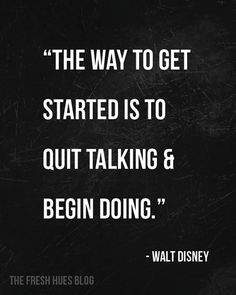 Are entrepreneurs made or born?
Are entrepreneurs made or born?
This question has been raised on various platforms. Are they a special breed, do they have some special persona that others lack? It is generally said that entrepreneurs come from entrepreneurial families; they continue running the enterprise created by their parents or forefathers. Some say, entrepreneurs are people born to do their own business – they will not work for somebody. In the past five years, multiple studies have indicated that there may be an “entrepreneur gene” or at least that people with certain genetic characteristics and personality traits are more likely to be successful entrepreneurs than others.
 Mr. James V. Koch of Old Dominion University, who has conducted an insightful research on risk taking ability of Corporate CEOs (research was funded by Kaufmann Foundation) published a book titled as “Born, not made.” The book is co-authored by James L Fisher. Mr. Koch says that some personalities are much more favorable for entrepreneurship. The ability to take risks is inborn and this is very important factor for entrepreneurship. Koch does feel that experience and knowledge and observation and environment count a lot. But, he’s not sure if risk-taking ability can be taught in schools. The ability of taking risks is simply hard-wired in the individual.
Mr. James V. Koch of Old Dominion University, who has conducted an insightful research on risk taking ability of Corporate CEOs (research was funded by Kaufmann Foundation) published a book titled as “Born, not made.” The book is co-authored by James L Fisher. Mr. Koch says that some personalities are much more favorable for entrepreneurship. The ability to take risks is inborn and this is very important factor for entrepreneurship. Koch does feel that experience and knowledge and observation and environment count a lot. But, he’s not sure if risk-taking ability can be taught in schools. The ability of taking risks is simply hard-wired in the individual.
So is entrepreneurship ingrained in genes? Well, we cannot give credit just to the genes. An individual’s nature and the way he is nurtured right from childhood matters. The early education from the school level itself can do a lot in creating more entrepreneurs in society. The priorities in our education should be to educate students to be more creative and allow them to unleash their talent so that they can create jobs.
 Former President of India A.P.J Abdul Kalam has always maintained that we need to encourage students to become entrepreneurs and not make them job seekers. To apply the preparedness he has listed a three-pronged strategy that will make education more attractive, skill imparting and simultaneously create employment potential.
Former President of India A.P.J Abdul Kalam has always maintained that we need to encourage students to become entrepreneurs and not make them job seekers. To apply the preparedness he has listed a three-pronged strategy that will make education more attractive, skill imparting and simultaneously create employment potential.
Firstly, the education system should prepare students to get oriented towards setting up enterprises, which will provide them creativity, freedom and ability to generate wealth, he said. Secondly, the banking system should provide venture capital to the graduates who have aptitude and keenness to create their own new enterprises. Thirdly, entrepreneurs have to produce competitive products for becoming successful in their missions. Kalam said this in his address on the 54th Foundation Day at IIT – Bombay.
A lot of research is being conducted in different parts of world on whether entrepreneurial instinct can be found in early life and whether such person can be trained to become one. In the next few decades, people will really drill down into what makes some people actively driven to entrepreneurship and whether some basic biological evidences can prove this.
whether such person can be trained to become one. In the next few decades, people will really drill down into what makes some people actively driven to entrepreneurship and whether some basic biological evidences can prove this.
 Julian Lange, Professor of Entrepreneurship at Babson College at Massachusetts is of opinion that entrepreneurship can be taught. He says that maybe, simply put, you can’t teach someone to be passionate about entrepreneurship. But, the teachers in the class room can definitely discover the innate passion for entrepreneurship in some of their students. And in terms of general skills, if these students are trained, mentored and counseled they will go in for entrepreneurship. Entrepreneurship coaching can enhance the ability of students who are interested. Lange says that there is a certain element of entrepreneurs which comes with birth itself. But, certainly some entrepreneurs are born, while some are made. At Babson, researchers have found that entrepreneurial education has a lasting influence on students.
Julian Lange, Professor of Entrepreneurship at Babson College at Massachusetts is of opinion that entrepreneurship can be taught. He says that maybe, simply put, you can’t teach someone to be passionate about entrepreneurship. But, the teachers in the class room can definitely discover the innate passion for entrepreneurship in some of their students. And in terms of general skills, if these students are trained, mentored and counseled they will go in for entrepreneurship. Entrepreneurship coaching can enhance the ability of students who are interested. Lange says that there is a certain element of entrepreneurs which comes with birth itself. But, certainly some entrepreneurs are born, while some are made. At Babson, researchers have found that entrepreneurial education has a lasting influence on students.
 There are benefits teaching entrepreneurship in classroom; students learn the fundamental theory behind why, how and where to start up a business. Such programs need to invite many guest speakers who are entrepreneurs themselves. During such sessions students are exposed to real current issues; they get to understand how to tackle initial blues in ventures, how to fight them back, and how to go about the growth.
There are benefits teaching entrepreneurship in classroom; students learn the fundamental theory behind why, how and where to start up a business. Such programs need to invite many guest speakers who are entrepreneurs themselves. During such sessions students are exposed to real current issues; they get to understand how to tackle initial blues in ventures, how to fight them back, and how to go about the growth.
The B Schools must offer an “experiential element” to the course. I have always felt this – B Schools can to do so much for entrepreneurship. Each B School must have a business incubation centre. Students should be given sessions to pitch the ideas and making business plans. Not only one idea, every semester they must make a business plan; so that by the time they pass out they have minimum 4-5 ideas and business plans. Practical ideas and plans must be supported by mentoring the students. We must appreciate and support students running a start-up while studying for their degree. It is being a student entrepreneur. Can we go the extra mile to support such students? Yes we can.
 We need to expose students to recognize opportunities. Some people may go through life and don’t quite see the opportunities. Education helps people to change at different points in their business and personal lives. It helps them become more receptive and interested to live life with dignity, truth and coping with effort.
We need to expose students to recognize opportunities. Some people may go through life and don’t quite see the opportunities. Education helps people to change at different points in their business and personal lives. It helps them become more receptive and interested to live life with dignity, truth and coping with effort.
Entrepreneurial opportunities exist in all walks of life. There is no sure short answer to any problem in starting and running a venture. No two businesses are alike, no two strategies are alike, and similarly no two entrepreneurs are alike. Every entrepreneur’s style of running his business is different. The world is full of opportunities and chances; we need to show this to our students. In my opinion, all graduate programs should have a compulsory internship; if possible the internship should be given with a start-up company; because entrepreneurship training requires observations and practice which a start-up can provide the best. Exposure to entrepreneurship can trigger the spirit of venturing out on own. Burning desire to create one’s own venture is the key.
starting and running a venture. No two businesses are alike, no two strategies are alike, and similarly no two entrepreneurs are alike. Every entrepreneur’s style of running his business is different. The world is full of opportunities and chances; we need to show this to our students. In my opinion, all graduate programs should have a compulsory internship; if possible the internship should be given with a start-up company; because entrepreneurship training requires observations and practice which a start-up can provide the best. Exposure to entrepreneurship can trigger the spirit of venturing out on own. Burning desire to create one’s own venture is the key.
 In my 15 years teaching experience I have seen that most of those with a natural desire to create their ventures are very determined, driven, and energetic, flooded with ideas, obsessive, are risk takers, expressive and convincing. In conclusion, if you want to start your venture, it doesn’t matter if you have never started a business before, or had started but it failed. It does not matter what your background is; whether you come from a business family or a non-business family. If you have this trigger of starting now, do not delay, if you have a business idea or are simply attracted by the prospect of starting out on your own, just go ahead and do it. Don’t think you are too young or too old – age is not the criteria. Just go ahead and venture out. You may feel astonished by discovering many talents in yourself that you were unaware of it all this while.
In my 15 years teaching experience I have seen that most of those with a natural desire to create their ventures are very determined, driven, and energetic, flooded with ideas, obsessive, are risk takers, expressive and convincing. In conclusion, if you want to start your venture, it doesn’t matter if you have never started a business before, or had started but it failed. It does not matter what your background is; whether you come from a business family or a non-business family. If you have this trigger of starting now, do not delay, if you have a business idea or are simply attracted by the prospect of starting out on your own, just go ahead and do it. Don’t think you are too young or too old – age is not the criteria. Just go ahead and venture out. You may feel astonished by discovering many talents in yourself that you were unaware of it all this while.













































